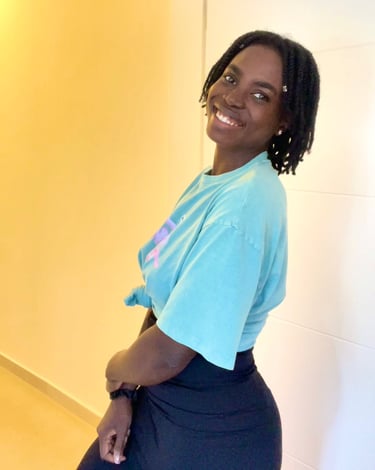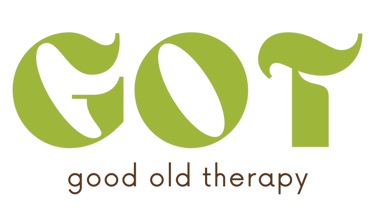'I Don't Know What My Purpose Is' - A Guide to Finding Your True Purpose
When you feel lost about your life's direction, here's what's really happening—and how to discover the purpose that's been waiting for you all along.
PERSONAL GROWTHPURPOSE
Basilia
11/2/20258 min read


Let me share something that might shift your entire perspective and help ease the pressure of “not knowing your purpose in life”: when you start thinking that you don't know what to do with your life, what you really mean is that you don't yet know who you are.
That realization flipped the switch for me, and I've watched it transform my clients' lives too. We spend so much energy searching for our purpose "out there"—the perfect career, the white picket fence and 2.5 kids, the meaningful project, the great friendships, the life-changing mission—when the truth is, your purpose begins “in here” —with understanding yourself.
If you're sitting here feeling lost, confused, or like everyone else has figured out their "why" in life except you—take a deep breath and release. You're not behind. You're not broken. You're exactly where you need to be to begin this journey.
What Your Purpose Is NOT (And What It Actually Is)
If your think your purpose needs to be some grand, world changing mission and you believe that you need to find that ‘one perfect thing’ that will make everything finally make sense; I hate to break it to you but, you’re wrong.
Here's the truth that might surprise you: your purpose is first and foremost just to be here.
Yes, really. Your existence itself has value. Your presence at this moment in time has and continues to shape the world in ways you cannot comprehend. You don't need to earn your place on this planet through achievement or productivity. You're already worthy simply by being.
Let that sink in for a moment.
Now, let me take that a step further: your purpose is to become the happiest, kindest and most gracious version of yourself.
Not the most successful. Not the most impressive. Not the version that looks best on social media, or has the most bragging rights in the group chat. It’s the version of you that feels most authentic, most at peace and most aligned with your core values.
And when it comes to the practical side—your work, your calling, your contribution—think of it this way: your life purpose is the point where your skills, interests, and what the world needs intersect.
It's not just about what you're good at. It's not just about what you love. It's about where those things meet a genuine need in the world around you.
Let me tell you about Marcus (*not real name). He came to therapy feeling completely lost, convinced he was wasting his life because he didn't have some grand calling. He's worked in IT for fifteen years and felt like his purpose was supposed to be something more "meaningful."
But as we talked, something emerged: Marcus was the person everyone at work came to when they felt overwhelmed by technology. He had this gift for breaking down complex things into simple steps, and he genuinely lit up helping people feel less frustrated and more capable.
His purpose wasn't to become a tech CEO or revolutionize the industry. It was right there in those small moments—using his natural patience and technical skills to make people's daily lives less stressful. Once he saw that, everything shifted. He started volunteering to teach seniors how to video call their grandkids, and for the first time in years, he felt like his life had meaning.
That's it. No fancy title, no viral mission statement—just his unique combination of skills (patience, technical skills) meeting a real need (reducing people’s stress and frustration with technology) in a way that lit him up.
That's what purpose actually looks like for most of us, it's often hiding in what you're already doing, in the moments that make you feel most alive and useful—beautifully ordinary and deeply meaningful.
Your purpose is adaptable—it can show up in different roles throughout your life. If your purpose is to help people feel less alone, you might express that as a therapist in your 30s, a mentor in your 40s, or a community organizer in your 50s.
The expression changes, but the core purpose remains.
When Your Whole Identity Is Reduced To One Role
Here's what happens when we make our purpose too small: we attach it to one job title, one relationship role, one identity.
"I'm a teacher." "I'm a mother." "I'm a designer."
And then what happens when that role changes or ends? When you lose that job? When your kids grow up? When your career shifts? You feel like you've lost your entire purpose, your entire self.
I see this all the time in my practice—people who've built their entire identity around one role, and when life inevitably changes (because it always does), they feel completely disconnected. They don't know who they are anymore because they've confused a role with their essence.
Listen, your purpose is so much bigger than any single position you hold. It's woven into who you are at your core—the values you hang onto, the way you show up for others, the unique perspective only you can offer.
How to Figure Out What You Want to Do With Your Life
Let's get practical. Here are some powerful questions to help you uncover what truly matters to you (Grab a pen, notebook, settle in and reflect):
1. What is worth struggling for? Not what sounds impressive or what you think you should want—but what's meaningful enough that you'd willingly face the challenges that come with it? What cause, person, or dream would you sacrifice comfort for?
2. Imagine your best self. Close your eyes for a moment. Picture the version of you that's living fully, authentically, joyfully. What does that person's daily life look like? How do they treat others? What are they spending their time and energy on? What qualities do they embody?
3. Remove the performance. If social media vanished tomorrow—if there was no one to impress, no audience to perform for—what would you do with your time? What would you create, explore, or contribute to if external validation wasn't part of the equation?
4. Notice what flows naturally. What activities make you lose track of time? What do people consistently come to you for help with? What feels effortless to you but difficult for others? These natural strengths are clues.
5. Design your ideal day. From the moment you wake up to when you go to sleep, what would your dream daily routine include? Who would you spend time with? What activities would fill your hours? What would make you feel fulfilled by day's end?
6. Consider your legacy. When your life is over, what do you want people to remember about you? Not your achievements necessarily, but the impact you had on others. How do you want to have made people feel?
A Strategy for Discovering Your Purpose
Here's a simple framework to work with:
Step 1: Explore yourself first. Spend time journaling, reflecting, and getting curious about who you really are beneath all the "shoulds" and expectations. Ask yourself: What did I love doing before anyone told me what I should be? What makes me feel most like myself?
Sample response: "I loved building things as a kid—Legos, forts, anything with my hands. I feel most like myself when I'm creating something from scratch and seeing it come to life."
Step 2: Identify your natural patterns. Notice what energizes you versus what drains you. Pay attention to what you're naturally drawn to. Example: Do you light up when solving problems, creating something beautiful, helping someone through a struggle, or organizing chaos into order?
Sample response: "I'm exhausted after big meetings, but I feel energized after one-on-one conversations where someone opens up to me. I'm always the friend people call when they need to talk something through."
Step 3: Look for the intersection. Where do your unique skills meet something the world needs? Where do your interests align with problems worth solving? Maybe you're great at explaining things simply (skill) and you love wellness (interest)—could you help people understand nutrition or mental health in accessible ways?
Sample response: "I'm good at listening and asking the right questions (skill), I'm fascinated by personal growth (interest), and I see so many people around me feeling stuck and directionless (need). Maybe I could coach people through transitions or major life decisions."
Step 4: Start small and experiment. You don't need to have it all figured out. Try things. Take small steps. See what resonates. Volunteer for a day. Take a course. Have coffee with someone doing work that intrigues you. Purpose reveals itself through action, not just thinking.
Sample response: "I'll start by offering to mentor one person at work who's new to the field. If that feels good, maybe I'll look into coaching certification programs or start a blog sharing what I've learned about career transitions."
Step 5: Be patient with the process. Finding your purpose isn't a destination—it's an ongoing journey of self-discovery that evolves as you grow. What feels meaningful at 25 might shift at 35, and that's completely normal. Give yourself permission to change and grow.
Positive thinking could look like this: "I used to think my purpose was climbing the corporate ladder, but now that I'm a parent, I care more about flexible work that lets me be present for my kids. My purpose is evolving, and that's okay—it doesn't mean I failed at the first version."
What Happens When You Live In Your Purpose
Something beautiful shifts when you start living more aligned with your true purpose. You stop feeling like you're pushing against life and start feeling like you're flowing with it.
Work becomes less about proving yourself and more about contributing meaningfully. Relationships deepen because you're showing up as your authentic self, rather than who you think you should be. Decisions become clearer because you have an internal compass guiding you.
You experience more peace, even when life is challenging. Why? Because you're not constantly questioning if you're on the "right" path—you know you're exactly where you need to be, learning what you need to learn.
And here's the beautiful paradox: when you stop desperately searching for your purpose and start simply being yourself more fully, your purpose often reveals itself naturally.
Your Purpose Is Already Within You
I want to leave you with this: you don't need to discover your purpose like it's some hidden treasure buried far away. It's already within you, woven into your experiences, your values, your natural inclinations.
Your purpose isn't about becoming someone completely different. It's about becoming more fully yourself—stripping away the layers of who you think you should be, to reveal who you actually are.
So if you're feeling lost right now, that's okay. Lost is just another word for "in transition." You're not missing your purpose—you're in the beautiful, messy process of uncovering it.
Be patient with yourself. Stay curious. Keep asking the questions. Keep experimenting. Keep showing up as the most authentic version of yourself you can access today.
Your purpose isn't something you find once and hold onto forever. It's something you live into, day by day, choice by choice, as you continue becoming who you were always meant to be.
And that journey? It starts right now, exactly where you are.


Self-improvement enthusiast, CBT therapist, with 4 years of experience helping people prioritize their mental health and reclaim their lives. Basilia uses her proven system for retraining the mind, offering practical tools that help people become the version of themselves they need to joyfully thrive, not just survive. It's okay to lean on me.
Basilia Frankel
Good Old Therapy I CBT
About the Author:
